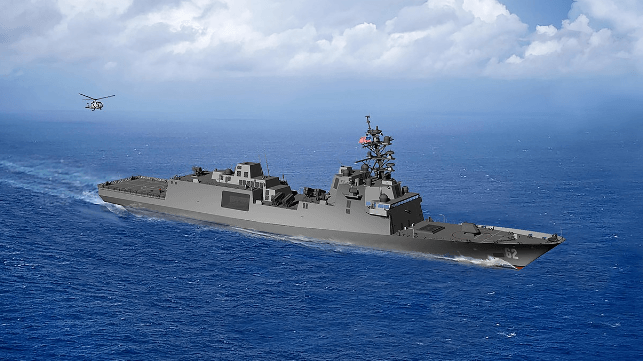U.S. Navy Plans Deep Review of Shipbuilding Delays

Following news that a next-generation frigate will be delayed, the U.S. Navy has announced a top-level review of its shipbuilding programs. Workforce challenges have plagued many American manufacturers, and the Navy says that it is feeling the impact in its acquisition pipeline.
“I remain concerned with the lingering effects of post-pandemic conditions on our shipbuilders and their suppliers that continue to affect our shipbuilding programs, particularly our Columbia Class Ballistic Missile Submarines and Constellation Class Frigate,” said Navy Secretary Carlos Del Toro in a statement Thursday. "We will continue to work with industry and all other stakeholders to strengthen our national shipbuilding capacity, both naval and commercial."
Two top acquisition officials, head of NAVSEA Vice Adm. Jim Downey and assistant secretary Nickolas Guertin, will head the review.
The announcement followed shortly after USNI News reported delays in the Constellation-class frigate program. The first-in-class vessel will likely be delayed by at least a year because of understaffing at the contractor's Wisconsin shipyard, a source in Congress informed USNI. A Navy program manager confirmed that there are "challenges within the schedule." The setback would push back the frigate's handover to 2027, the final year of the "Davidson window" prediction of peak risk for a Taiwan Strait contingency.
An in-depth review of the staffing issues at the Constellation-class shipbuilder's yard is already under way. The Navy has provided supplemental funding to incentivize staff to stay in Wisconsin and complete the project, according to USNI.
Welders are in high demand in shipyards and industrial enterprises across the U.S., and skilled craftsman may have their pick of employers, including yards in larger cities and warmer climates.
No comments:
Post a Comment